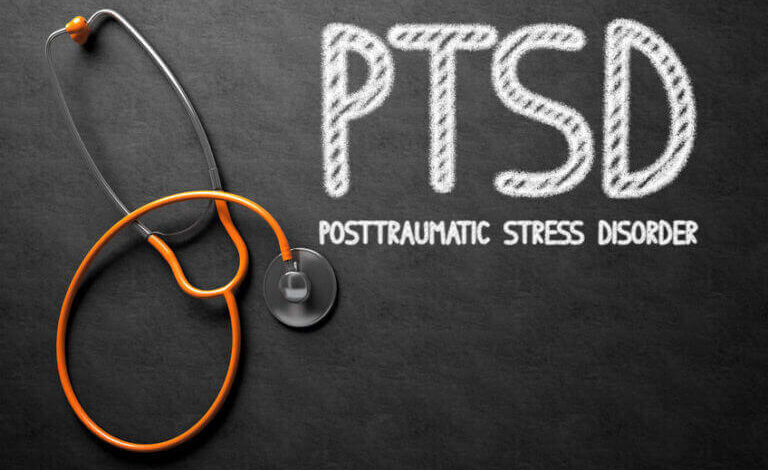Medication, psychotherapy, and a combination of both have been shown to help individuals who are struggling with mental disorders, eating disorders, emotional turmoil, and substance use disorders. There are multiple types of psychotherapy and a vast array of medications available for anxiety, depression, borderline personality disorder, bipolar disorder, and other common mental health disorders. So how do you choose what is the best fit for you?
Although it is important to do your own research on the different medications and therapies available, the relationship between you and your therapist will ultimately be your guiding light as to what makes you feel comfortable in terms of specific treatment. Treatment can be long-term or short-term, depending on the severity of your signs and symptoms. When discussing your treatment options with your therapist or psychiatrist, below are a few questions to ask or keep in mind:
- What are the side effects (if any) of the medication that you recommend?
- How long will it take for the medication to work?
- Will the medication dosage need to be increased over time?
- Will I need to be on medication long-term?
- What types of therapies will work best for my disorder?
- How many sessions of psychotherapy do you recommend?
- How much does each session of psychotherapy cost?
- Does my health insurance cover treatment?
The decision of whether you should take medication or undergo psychotherapy for your mental health disorder is a big decision that requires research and open and honest conversations with your healthcare provider. The out-of-pocket cost of medication vs. psychotherapy may also dictate which route you choose. Even though your mental healthcare provider may guide you and recommend one type of treatment over another, it is ultimately your decision as it is your mind and body that you have control of.
Common medications for anxiety and depression
Anti-depressant medications are not just used to treat depression but can also be used to treat anxiety disorders. Selective serotonin reuptake inhibitors (SSRIs) and serotonin-norepinephrine reuptake inhibitors (SNRIs) are the most widely used antidepressant agents to treat anxiety and are known to increase serotonin and norepinephrine, respectively, in the brain. Serotonin and norepinephrine are neurotransmitters that play a significant role in anxiety.
- Selective serotonin reuptake inhibitors: Work by blocking the reabsorption, or reuptake, of serotonin by specific nerve cells in the brain. SSRIs include citalopram, escitalopram, fluoxetine, paroxetine, and sertraline.
- Serotonin-norepinephrine reuptake inhibitors: Work by increasing the levels of the neurotransmitters serotonin and norepinephrine by inhibiting their reabsorption into cells in the brain. SNRIs include venlafaxine and duloxetine.
- Tricyclic antidepressants: Work by inhibiting the reabsorption of the neurotransmitters serotonin and norepinephrine.
- TCAs are not the most widely used antidepressant medications for anxiety; however, they are generally favored over benzodiazepines since benzodiazepines are known to have a high addictive potential. TCAs can be used to treat some anxiety disorders but carry a high side effect profile, including low blood pressure, dry mouth, blurry vision, and constipation, and as a result, SSRIs and SNRIs are favored over TCAs.
Types of psychodynamic therapy
Cognitive-behavioral therapy
Cognitive-behavioral therapy (CBT) is the most common therapeutic modality used for addiction and mental health disorders. Cognitive-behavioral therapy, in its simplest form, helps people understand their underlying emotions and thought patterns that influence their behaviors and actions. Specifically, CBT works to uncover automatic negative thoughts that can lead to emotional difficulties.
The goal is for clients to understand negative thoughts and feelings that influence behaviors and change these distortive thoughts and emotions into positive thought processes that can lead to healthy behaviors. Individuals can be in control of their thought processes, and they can have the power to block out automatic negative thoughts. Changing these thought processes can lead to a behavioral shift over time. This is a stepwise therapy approach where each phase must be completed successfully before an individual can move onto the next phase:
- Functional Analysis-The stage of CBT where the individual is learning to identify problematic beliefs
- Actual Behaviors-The second stage of CBT where new skills are learned practiced and applied to real-world situations
- Behavior Change-Final phase of CBT that encourages an individual to take steps towards implementing a developmental transformation.
Dialectal behavioral therapy
Dialectal behavioral therapy (DBT) stems from cognitive behavioral therapy and encourages clients to manage negative emotions and decrease conflict within relationships. DBT differs from cognitive behavioral therapy in that it has four main strategies: core mindfulness, distress tolerance, interpersonal effectiveness, and emotion regulation. Mindfulness focuses on the individual’s ability to be present at the moment. Distress tolerance works towards accepting negative emotions rather than trying to push them away. Emotion regulation helps individuals learn to manage difficult emotions instead of negatively acting upon them. Interpersonal effectiveness teaches individuals to interact with others respectfully and confidently that maintains self-respect and builds healthy relationships.
Interpersonal psychotherapy (IPT)
Interpersonal psychotherapy (IPT) addresses specific areas within the individual that cause maladaptive thoughts, perceptions, and behaviors. Recognizing interpersonal conflicts, conflicts with others, grief, and stress can help change the maladaptive thoughts and work to improve mood and self-esteem.
Eye movement desensitization and reprocessing (EMDR)
Due to the strong association between trauma, PTSD, and eating disorders in the literature, researchers have suggested that clinical interventions for traumatized eating disorder clients may benefit from treating PTSD symptomology. One such possibility for treating co-occurring trauma and eating disorders includes eye movement desensitization reprocessing (EMDR) therapy. Although EMDR therapy is not considered to have a direct benefit for people with eating disorders, it may be potentially useful for treating patients with eating disorders if their behaviors were triggered by a traumatic event.
Family-based therapy (FBT)
Family therapy, or family-based treatment, has been shown to be most effective in individuals who are under 18 years old and if applied within three years of the onset of the illness. While family-based treatment has primarily been studied and proven effective as a treatment for teenagers with anorexia, studies are also finding encouraging results in trials that involve patients with bulimia nervosa. Family-based treatment for anorexia nervosa progresses through various phases, which typically last for the duration of about one year and is led by a qualified team that specializes in this form of treatment.
All of the above therapy approaches can be modified to fit an individual therapy or group therapy setting.
How to make therapy work for you
- You must be an active participant in your talk therapy sessions: Be honest with your mental health professional throughout treatment by giving them feedback and telling them what is and what is not working for you. Reflect on and use your feelings during the therapy session to try to manage your emotions instead of trying to only deal with your feelings and emotions while at home.
- Stay engaged and connected with your therapist by maintaining eye contact and asking questions
- Play along: Listen to what your therapist is telling you, cooperate and do the exercises you are asked to do, whether you feel like it or not. Talk therapy is not magic, you have to actively put in the time and work by following instructions and facing your fears, anger, and resentment in order to relieve your depression. A lot of depression therapy is “mind over matter” meaning the more you practice your positive affirmations the more your attitude will actually change over time.
- Do work outside of therapy: A good therapist will not just use talk therapy as a treatment for your depression. Therapists will advocate for self-care, meaning that at home you should practice good sleep hygiene, eat well and exercise. Taking care of yourself will elevate your mood. You may also be encouraged to keep a mood diary in order to write down when you feel depressed and describe the specific situation.
- You truly want to get better: Individuals with depression may not want to get better because they take pleasure in maintaining the sick role. Their primary goal for not seeking treatment may be to get back at their spouse or having an excuse to miss work. A good therapist will recognize these primary and secondary gains and work to eliminate them. A good therapist will allow you to recognize if you are gaining pleasure from your internal pain.




